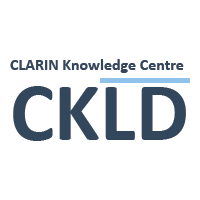The Centre
The CKLD is a virtual distributed centre comprising institutions at the University of Cologne (DCH and IfL), University Hamburg (HZSK), and in Berlin (ZAS and ELAR, at the BBAW). The mission of the CKLD is to establish a single interface to reliably provide the expertise on various aspects of the thematic focus brought in by the founding members. The center offers information on current best practices, available resources and tools, and gives advice in technological and methodological matters for researchers working within relevant fields. As a member of the European digital research infrastructure CLARIN, the aim of the CKLD is also to allow for a better integration of these research communities and the resources and tools into existing and emerging digital research infrastructures. This also includes further coordinated work on relevant best practices.
Language documentation and research in linguistic diversity share a joint focus on less-widely studied languages. These languages are often minority languages and frequently endangered. The main objective of language documentation is an annotated multimodal audio-visual collection or corpus as a comprehensive record of the linguistic practices characteristic of a given speech community. Research in linguistic diversity on the other hand comprises descriptive studies and analyses of individual under-resourced languages and comparative typological linguistics that takes into account the world-wide diversity of human languages. While research questions and methods may differ, both disciplines share many methods, tools, and challenges. The documentation and analysis of smaller, lesser known and endangered languages around the world and related research – typically in a field-work setting – requires technical knowledge and specialized skills. The required expertise comprises recording of speech events, metadata management, data handling, transcription and annotation, (semi)-automatic analysis, documentary and typological corpus and database compilation, archiving of results, among others. Typological research in language diversity often requires additional layers of annotations and the application of search and clustering algorithms to typological corpora and databases.
Building a sustainable distributed support and knowledge infrastructure for linguistic diversity and language documentation is an organisational and academic challenge. Linguistic diversity research and language documentation are by definition global endeavours and at the same time highly localised. Methodologically, it includes the classical issues of linguistic fieldwork as well as the application of the full range of language related technologies from the areas of speech technology and digital humanities in well equipped academic settings and remote field sites. The CKLD approaches this challenge by combining the expertise of language typologists, field linguists, sociolinguists, computer linguists, computer scientists, data curators as well as language archivists from four institutions focussing on several geographic locations into a single digital institution.
